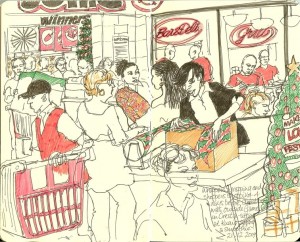Brian Lamb continues in a tradition of respect for Everyman and for history. Some trading and lobbying may well be part of any but the most unimportant of legislation. Still we should know what is in a bill with the potential of this one. Few bills have the means to change, limit, even shorten our lives than has this one. Sure, many a legislator’s career will be affected if we know – but isn’t that the point? Aren’t they supposed to be willing to stand, publically, by their votes? And a shortened career is not, of course, a shortened or damaged or stunted life.
Lamb’s long and old argument to open up such discussions has seldom seemed more important than it does here. (Note earlier requests.)
Side note: Feral Hogs. Hat tip – Fox News, Instapundit, and (surprise) the Mother Jones article Reynolds linked.
